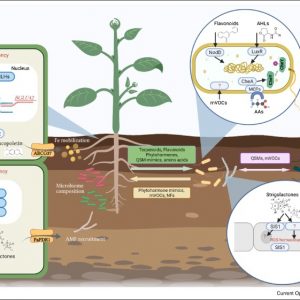Microp
Harnessing the second genome of plants; Microbial imprinting for crop resilience
We are witnessing a new imperative in the life sciences with the realization that microbes are important drivers, rather than passengers, of the wellbeing of plants, animals and humans. Host-associated microbiomes, also referred to as “the second genome of eukaryotes”, have a largely unexplored potential to expand the genomic capabilities of their hosts – providing enhanced host immunity, ingenious nutrient acquisition systems, improved host architecture, and tolerance to environmental stress. This paradigm shift comes with new scientific challenges to address key societal problems of the 21st century, in particular the increased global demands for crops that are more resilient to (a)biotic stress (i.e. drought, diseases, pests) and less dependent on fertilisers and pesticides. MiCRop integrates next generation microbiomics approaches to identify functional traits that are involved in plant-microbiome assembly in order to maximize their activities for enhanced plant growth and resilience to environmental stress. We will study the evolution of plant-microbiome interactions and identify opportunities for future plant breeding at an unprecedented scale. Our focus is on understanding stress-adaptive microbiomes and their active recruitment by plants across the plant kingdom through a phylogenetic approach. Moreover, we will identify novel plant traits that maximize the beneficial functions of the root microbiome and overcome environmental constraints or provide protection against pests and diseases.
| Research Theme | Evolution Nutrient Availability |
| Duration | 2020-2030 |
| Funding agency | NWO Gravitation Programme 2018-2019 |
| Website | www.microp.org |






